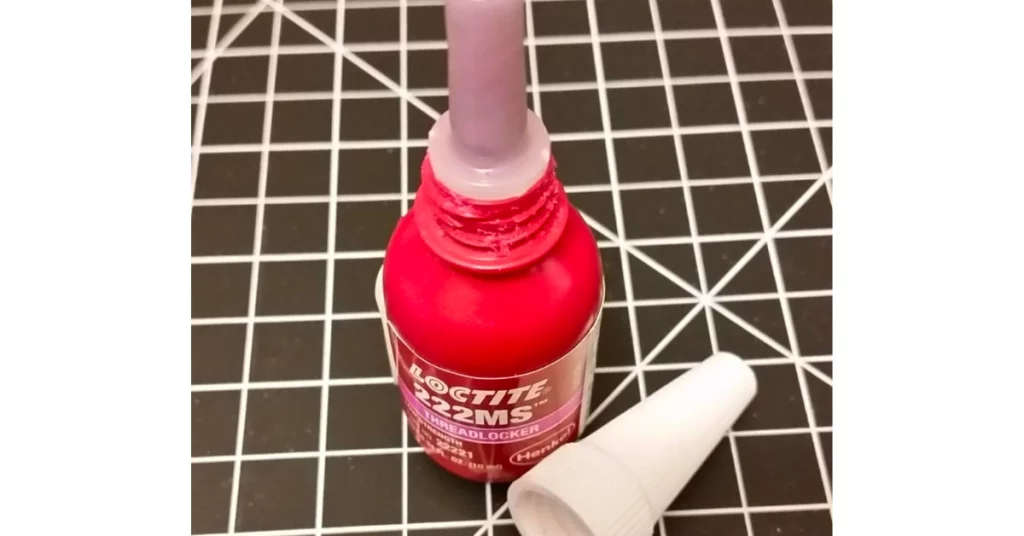If you are looking for a way to seal threaded connections and prevent leaks, you may have come across two popular brands of sealants: Leak Lock and Loctite.
Regarding pipe thread sealing, Leak Lock is the best option. Alternatively, Loctite provides a wider range of bonding and sealing solutions if you need to secure fasteners.
In this article, I will compare Leak Lock Vs. Loctite, highlighting their features and applications and helping you make an informed decision for your project.
Read More: Leak Stopper Vs. Flex Seal
Leak Lock Vs. Loctite
What is Leak Lock?
Leak Lock is a soft-setting pipe joint compound that contains Teflon and other lubricants.
It is designed to seal leaks in metal and plastic pipes, fittings, and valves. It can withstand high pressures and temperatures and resist chemicals and corrosion.
It is specifically designed for plumbing and HVAC applications where sealing pipe threads, and fittings is essential.
Leak Lock is not recommended for use on threaded fasteners that require high strength or torque.
Some key points to consider about Leak Lock include:
- Ideal for use in various pipe materials, including metal and plastic.
- Resistant to chemicals, water, and heat.
- Easy to apply and offers a reliable, long-lasting seal.
Read More: Thread Sealant vs. Threadlocker
What is Loctite?
Loctite is a brand of thread lockers which are adhesives that prevent threaded fasteners from loosening due to vibration or thermal expansion.
Loctite offers a range of thread locker strengths, such as low-strength purple, medium-strength blue, high-strength red, and permanent green. The color indicates the level of difficulty in removing the fastener after applying the thread locker.

For example, a purple thread locker can be removed with common tools, while a red thread locker may require heating or special tools.
While Leak Lock specializes in pipe thread sealing, Loctite provides a broader selection of products, including thread lockers, instant adhesives, sealants, and more.
Here’s why Loctite is worth considering:
- High-quality adhesives that provide strength and durability.
- Thread lockers ensure secure fastening, preventing the loosening of threaded connections.
- Extensive product range suitable for different materials and applications.
Read More: Loctite 242 vs. 243
How To Choose Between Leak Lock and Loctite?
When deciding between Leak Lock and Loctite, it’s essential to consider the specific requirements of your project. Make an informed decision by considering these factors:
Application
If you need to seal pipe threads or fittings, Leak Lock is the ideal choice. For securing fasteners and preventing loosening, Loctite’s thread lockers are recommended.
Materials
Consider the compatibility of the adhesive with the materials you are working with. Both Leak Lock and Loctite offer products suitable for various substrates.
Strength and Durability
Evaluate the strength and longevity required for your project. Loctite’s adhesives are known for their excellent bonding properties, while Leak Lock excels in creating reliable, leak-free connections.
Environmental Factors
Take into account the temperature, pressure, and chemical exposure that your application may encounter. Both brands offer products with different resistance capabilities.
Read More: Nylon Patch vs. Loctite
Will Loctite Stop a Leak?
Does Thread Lock Stop Leaks?
Last Opinion
Here, I tried to guide you about choosing the perfect thread sealant by comparing Leak Lock Vs. Loctite.
Leak Lock and Loctite are both effective sealants for threaded connections, but they have different properties and applications.
Leak Lock is more suitable for sealing pipes, fittings, and valves that do not require high strength or torque. Loctite is more suitable for locking and sealing fasteners that are exposed to vibration or thermal expansion.

